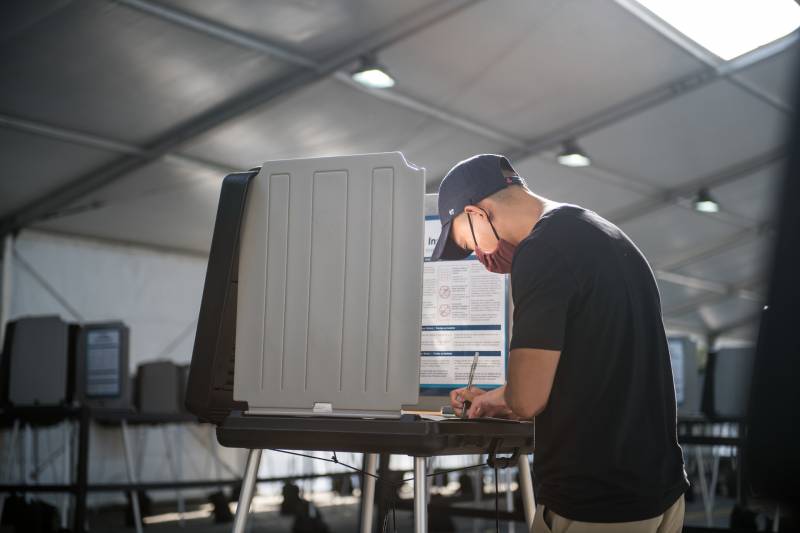There’s also a nationwide hotline of attorneys who have been trained and are available for any questions or to flag any issues. Voters can call the [nonpartisan Election Protection coalition] at 866-OUR-VOTE, which will connect them with that network of attorneys who will be monitoring the elections.
Macías: It’s also important to understand that elections officials [are] reading what voters are reading, too — and they’re making preparations. They’re training their poll workers in de-escalation tactics, and making sure that they’re coordinating with with law enforcement as necessary, in case they need to be deployed there. They’re monitoring what’s being said, and making sure that they’re prepared in case there is intimidation or attempted intimidation of voters. So I think elections officials seem well prepared for this.
What Rights Do I Have at My Polling Center?
Salceda: There’s both state and federal laws that make it very clear that that prohibits voter intimidation. So if someone is behaving in a way that seems forceful, intimidating, threatening, violent or coercive at or near a voting location or drop-box, that’s the type of issue that should be reported to a local elections official who will hopefully be able to resolve the issue.
In California also, for example, peace officers in uniform are prohibited from being at a voting center unless they are there to vote themselves, or if it’s to address an issue [see above.] That law really stemmed from incidents that happened in California in the 1980s, where some candidates used to hire security guards to stand at the vote center. So that is prohibited in California.
And so if there’s any instances of that, or even individuals who are pretending to be security guards or uniformed police officers, those are the types of incidents and incidents that should be reported immediately to local elections officials, who can then try to resolve the issue.
Macías: [To address] other reports you’re hearing where it seems that that, potentially, militias or armed observers are going out to polling places: in California, specifically, carrying any kind of weapon in the vicinity of a polling place is illegal.
If voters are being made to feel uncomfortable, they should report it to the poll worker staff right away. Voters should know that nobody except a poll worker can ever challenge their eligibility to vote. And so if that’s happening, or they feel people are asking them questions about their eligibility who are not poll workers, that’s something they can also report to the poll workers on site. Or they can call 866-OUR-VOTE for assistance.
There are laws that protect [voters] from any kind of discrimination based on their example, based on their race or their national origin or their primary language. None of those should be reasons that they face intimidation or face questions about their eligibility.

